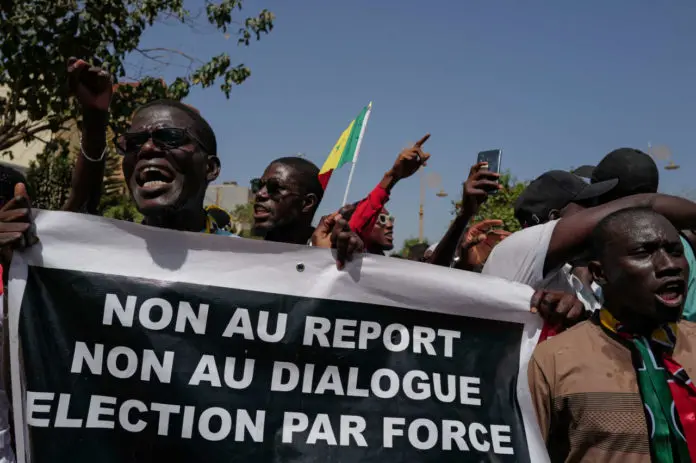- P.O. Box: 11482 Yaoundé, Cameroon; Headquarters: Efoulan, Yaoundé 3
- contact@caessinternational.org

On Saturday, February 3, the President of Senegal, Macky Sall, elected in 2012 and re-elected in 2019, announced the postponement of the presidential election originally scheduled for February 25. He made this decision due to an "open conflict" between the National Assembly and the Constitutional Council, "amid an alleged corruption case involving judges," he explained. The president stated that Senegal could not "afford another crisis" and announced "a national dialogue" for "a free, transparent, and inclusive election," while reaffirming that he would not be a candidate in this election.
Macky Sall’s decision to postpone the presidential election was denounced by his opponents as a "constitutional coup," causing an outcry among qualified candidates and civil society. Following protests that caused turmoil across the country, mobile data internet was cut off in Senegal. The Ministry of Telecommunications cited the spread of "hate speech and subversive messages" on social media as the reason.
Faced with several appeals from eight presidential candidates and 51 members of parliament challenging the decree issued by President Sall, the Constitutional Council declared itself competent to rule on the appeals against the law postponing the presidential election to December 15 and against the aforementioned decree. It was thus ruled that "Decree 2024-106 of February 3, 2024, repealing the decree convening the electoral body for the presidential election of February 25, 2024, is annulled," the high court stated in its decision. The Council considered that the contested decree, issued based on the bill notified to the President of the Republic, lacked legal basis and was therefore subject to annulment.
Presented as the normal expression of a democratic society, the political situation in Senegal has earned the admiration of many African societies, which view the Constitutional Council’s decision as a triumph for Senegalese democracy.
However, in a context where street mobilizations appear to have become the preferred mode of expressing "public opinion," it seems appropriate to question the timing of this historic decision by the Constitutional Council. Indeed, until now, the Council’s jurisprudence had led it to declare itself incompetent to censor a law adopted by the National Assembly with a three-fifths majority. This unprecedented event can therefore, to some extent, be seen as the result of street influence. Indeed, as recourse to street protests becomes an attractive alternative for many political actors—as evidenced by the "yellow vests" movement in France—African democracies would benefit from adopting a proactive stance toward this phenomenon, which, over time, could pose a serious threat to the consolidation of democracy in Africa.